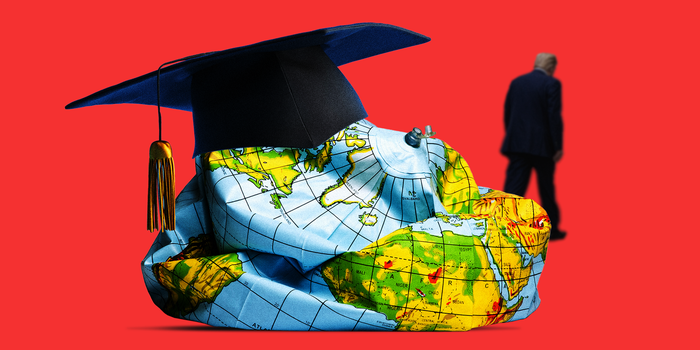UPDATE: American students are rushing to study abroad, with nearly 300,000 seeking academic credit in the 2023-2024 academic year, marking a significant recovery post-pandemic. However, rising costs, political challenges, and financial uncertainties are complicating this return to international education.
The latest data from the Institute of International Education reveals a 6% increase in U.S. students studying abroad, with popular destinations like Italy, Spain, and the United Kingdom seeing significant interest. The Universities and Colleges Admission Service in the U.K. reported a 14% surge in undergraduate applications from American students for the 2025 fall semester, while the University of British Columbia noted a 27% increase in graduate applications.
Despite the surge in interest, the landscape for studying abroad has become increasingly precarious. Financial aid uncertainties loom large, as many institutions face budget constraints and reduced state funding. Melissa Torres, president of the Forum on Education Abroad, stated, “We are seeing off-the-charts demand for study abroad,” but highlighted that “it’s also harder than ever to pull off.”
Many American colleges are struggling to offer affordable options for study abroad programs. Some institutions waive tuition fees for the semester, while others require students to pay tuition directly to their U.S. university, complicating access to scholarships and financial aid. Ryan Dye, executive director of AIFS Abroad, noted that financial anxiety is escalating, stating, “Schools are being told to retain tuition at the home institution,” which could limit opportunities for international experiences.
The political climate is also influencing students’ decisions. Earlier this year, the U.S. Department of State paused funding for key international exchange programs, including the Fulbright-Hays Program and the Gilman Scholarship. While funding was eventually restored, the uncertainty left many students anxious about their future abroad.
Students are now facing not just financial barriers, but also the reality of how their American identity is perceived globally. Jill Madenberg, a college admissions counselor, expressed concern over parents’ apprehensions regarding their children being viewed as Americans in foreign countries. Students like Genevieve Klein, a junior studying in Paris, reported feeling the need to address negative perceptions about the U.S. during their time abroad.
For students who manage to navigate these hurdles, the benefits of studying abroad can be substantial. Research indicates that students who study abroad earn, on average, $4,159 more in their first job after graduation, according to the Forum on Education Abroad. However, as costs rise and access becomes more limited, the divide between who can study abroad and who cannot is widening, raising concerns about the future workforce.
Teala Avery, a 2024 Spelman College graduate, shared her experience of financing a semester abroad in Tokyo by relying on a mix of scholarships and loans. “Studying abroad during college was just a no-brainer for me,” she said, highlighting that the logistical challenges did not overshadow the transformative experience.
The globalized economy increasingly demands international experience, making study abroad more crucial than ever. As American students face financial and political headwinds, the future of international education hangs in the balance. The urgency to address these issues is more pressing than ever to ensure equitable access to global learning opportunities.
In this rapidly changing environment, students, families, and educational institutions must adapt to navigate the complexities of studying abroad. The potential for significant future impacts on individual careers and the economy underscores the importance of making study abroad accessible for all students.
